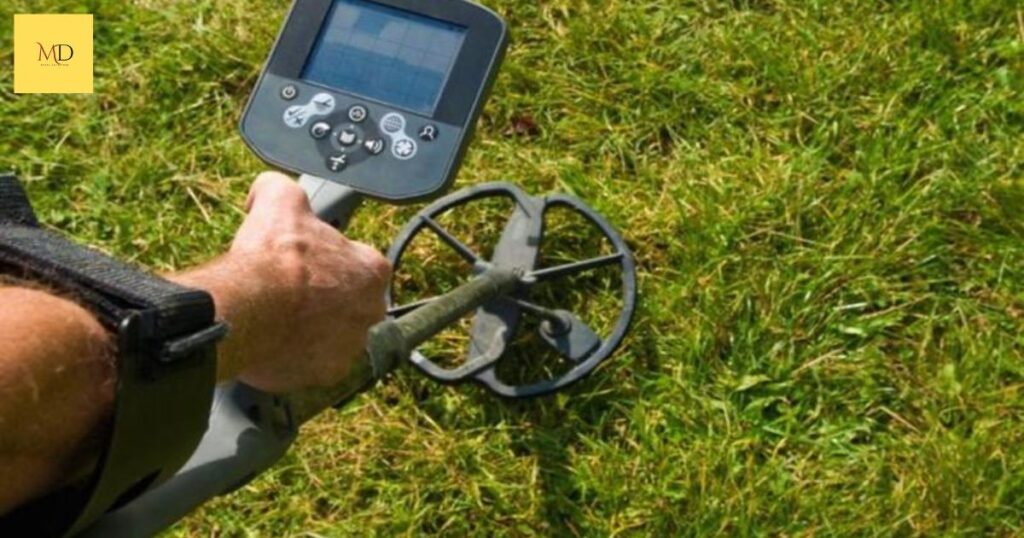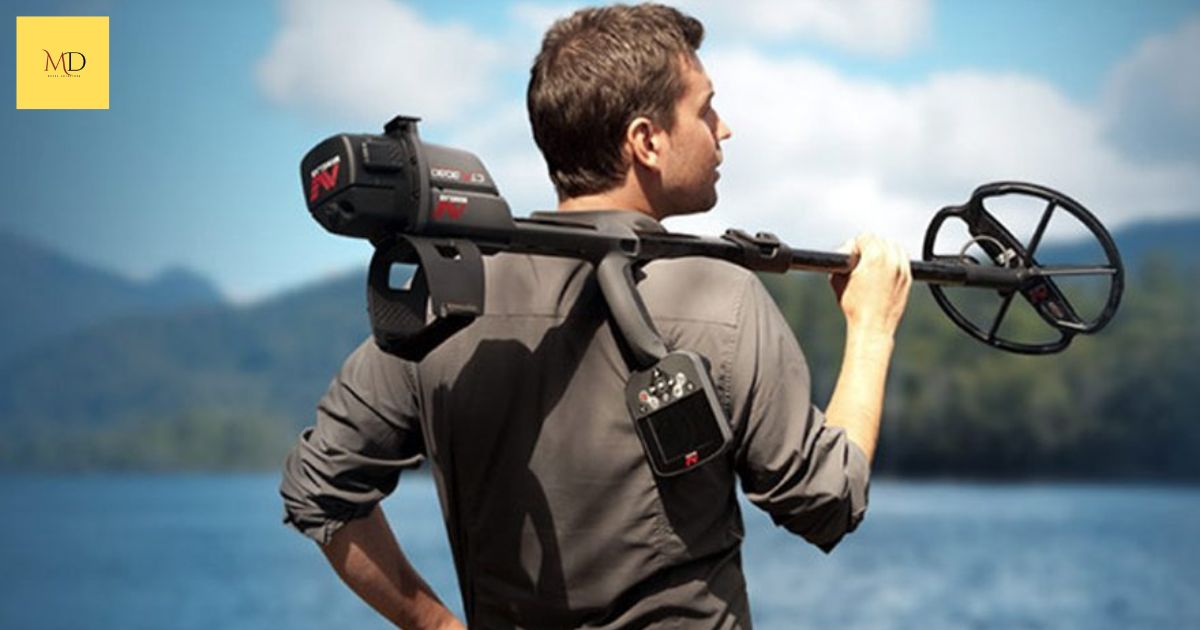Metal detectors are electronic devices that detect the presence of metal objects. They work by emitting a magnetic field and can identify metals based on their conductivity and magnetic properties. Metal detectors are commonly used for security screening at airports and finding buried treasures. They are also utilized in industrial settings for quality control and locating metal contaminants in food products.
Curious if titanium sets off metal detectors? If you’re about to embark on a journey through airport security or just interested in the science of metals, we’ve got the answer for you. Discover the truth about whether titanium triggers those beeping alarms and learn how to navigate this metal-related mystery with confidence.
Titanium typically does not set off metal detectors. It is a non-ferrous metal and is often considered safe for passing through security checkpoints without triggering alarms. This makes it a popular choice for medical implants, jewelry, and various everyday items. However, it’s important to note that the sensitivity of metal detectors can vary, so some extremely sensitive detectors may still detect titanium in certain circumstances.
Metals That Set Off Detectors
Metals that set off detectors are typically those that are ferrous or highly conductive. Ferrous metals contain iron and are magnetic, which makes them highly detectable by metal detectors. Common examples include steel, iron, and nickel. These metals often trigger alarms at security checkpoints, like those in airports, due to their magnetic properties.
Highly conductive metals, such as copper, brass, and aluminum, can also set off metal detectors because they allow electricity to flow easily. While not magnetic like ferrous metals, their conductivity makes them stand out in security scans. It’s essential to be aware of these metals when passing through metal detectors to prevent unnecessary delays and ensure a smooth security screening process.
Metal Implants and Airport Metal Detectors
Metal implants and airport metal detectors are a common concern for travelers and patients alike. Metal implants, such as joint replacements or surgical screws, are often made from materials like titanium or stainless steel. The good news is that these implants are typically designed to be compatible with airport metal detectors. They are non-ferrous, which means they don’t contain iron and are less likely to trigger alarms. However, it’s essential to inform airport security personnel about your implants to ensure a smooth screening process.
In rare cases, very sensitive metal detectors may pick up on certain metal implants, but this is unusual. Patients with metal implants can carry medical documentation to clarify their situation, offering peace of mind during their travels. Overall, the coexistence of metal implants and airport metal detectors is usually manageable and should not deter anyone from seeking necessary medical procedures.
Long-Haul Flight Survival Guide
Enduring a long-haul flight can be challenging, but with some smart strategies, it can become a more comfortable experience. To start, choosing the right seat is crucial. If you’re looking for more legroom, opt for an aisle or exit row seat. Metal detectors detect gold. Stay hydrated throughout the flight by drinking water and avoiding excessive caffeine and alcohol, which can lead to dehydration. For entertainment, bring your own gadgets and pre-download your favorite movies or shows.
Make sure to stretch and move around the cabin periodically to prevent stiffness and deep vein thrombosis. Packing essential items like earplugs, an eye mask, and moisturizers can enhance your in-flight comfort. With these tips in mind, you can make your long-haul flight more enjoyable and arrive at your destination feeling refreshed and ready for your adventure.
Continue Reading
Is a commonly used prompt on websites and in printed materials to encourage readers to delve deeper into an article, blog post, or document. It serves as an invitation to explore more information on a particular topic. By clicking or tapping on “Continue Reading,” readers can access the full content, gaining a more comprehensive understanding of the subject matter.
In the digital age, this link or button is especially valuable as it allows readers to access in-depth insights, further details, or the conclusion of a story or article. It plays a crucial role in keeping audiences engaged and informed, ensuring that they don’t miss out on the valuable information that lies beyond the initial glimpse. So, if you encounter Continue Reading it’s an invitation to unlock a wealth of knowledge just a click away.
Titanium Shouldn’t Trigger Metal Detectors

Titanium is often a traveler’s best friend, as it generally shouldn’t trigger metal detectors. This durable and lightweight metal is non-ferrous, which means it lacks magnetic properties that typically set off these security devices. As a result, titanium implants, jewelry, and accessories can usually pass through airport and security checkpoints without causing any alarms to sound.
It’s essential to be aware that not all metal detectors are created equal. While most modern detectors are designed to ignore titanium, extremely sensitive ones may still pick it up in some cases. So, when you’re on your way to your next adventure, rest assured that your titanium possessions should stay incognito at security screenings, but always be prepared for the unexpected.
Dental Implants Make Traveling More Convenient
I’m not sure what specific information you’d like in the table, but here’s a simple table with a few points about how dental implants can make traveling more convenient:
| Point | Explanation |
| Improved Chewing and Eating | Dental implants allow for better food enjoyment. |
| No Need for Removable Dentures | No worries about dealing with removable dentures. |
| Enhanced Confidence | Improved self-esteem with a full smile. |
| Durability and Longevity | Dental implants offer long-lasting benefits. |
| Hassle-Free Security Screening | No concerns about dental implants at airports. |
You can add more details or specific points as needed.
Is Chronic Pain All in
Chronic pain is a complex and often misunderstood condition that can’t be solely attributed to psychological factors. While the brain does play a crucial role in the perception and management of chronic pain, it’s far from being purely a mental construct.
Chronic pain typically stems from various physical sources, such as injuries, inflammation, or underlying medical conditions. It’s a real, tangible experience that affects millions of people, impacting their daily lives. While mental and emotional factors can influence the intensity and duration of chronic pain, it’s essential to recognize that chronic pain is a genuine physical issue that deserves proper medical attention and treatment.
Will a Titanium Hip Set Off a Metal Detector?
A titanium hip implant is unlikely to set off a standard metal detector. Titanium is non-ferrous, which means it doesn’t contain iron and isn’t magnetic. Most metal detectors at airports and security checkpoints are designed to detect ferrous metals like steel, which is magnetic. Therefore, a titanium hip implant should go unnoticed during routine security screenings.
it’s important to inform the security personnel about your hip implant before going through the metal detector to ensure a smooth and efficient screening process. Additionally, be aware that some highly sensitive or specialized metal detectors might still detect titanium, but this is relatively uncommon in everyday situations. Overall, having a titanium hip should not be a significant concern when passing through metal detectors at airports or other security checkpoints.
Will a Titanium Rod in My Leg Set Off a Metal Detector?
Having a titanium rod in your leg usually won’t set off a metal detector. Titanium is a non-ferrous metal, which means it doesn’t contain iron and is not magnetic. Most standard metal detectors at airport security checkpoints are designed to detect ferrous metals and may not be sensitive enough to pick up on titanium. As a result, people with titanium implants, like rods in their legs, can usually pass through metal detectors without any issues.
It’s essential to keep in mind that the sensitivity of metal detectors can vary, and some highly specialized or exceptionally sensitive detectors might still detect titanium. In such cases, it’s advisable to carry a medical implant card or a letter from your healthcare provider explaining your condition. This can help you navigate security procedures smoothly and ensure a hassle-free experience during travel.
Conclusion
The presence of a titanium rod in your leg is unlikely to set off a standard metal detector. The non-magnetic properties of titanium make it a safe choice for medical implants, and it won’t trigger the alarms commonly used in airport security checks. This is a reassuring fact for individuals who have undergone surgery to receive titanium implants and are concerned about the airport screening process.
While the majority of people with titanium rods can pass through metal detectors without any issues, it’s still important to be prepared for the occasional variability in detector sensitivity. Having a medical implant card or a letter from your healthcare provider explaining your situation is a prudent precaution. This documentation can help you communicate with security personnel and ensure a smooth and efficient experience during your travels. Overall, understanding the properties of titanium and being informed about the specific.











